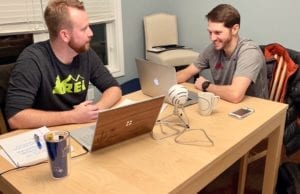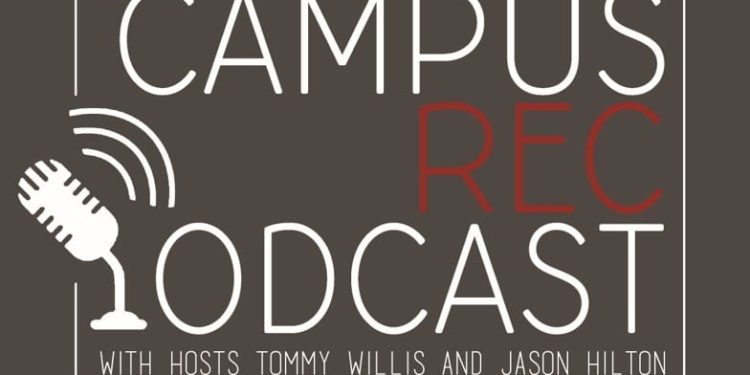What happens when two long-time friends and campus rec professionals are passionate about their jobs? They follow suit and make the Campus Rec Podcast, of course.
Jason Hilton, the associate director of recreation and wellness at Morehead State University, and Tommy Willis, the associate director of campus recreation at Eastern Kentucky University, found themselves watching the World Cup one day and catching up on each of their departments. During their conversation, they realized this type of communication between campus rec professionals is where good ideas come from.
Both Hilton and Willis decided they wanted to capture genuine conversation about higher education, specifically in campus recreation, so they did some research. They found several higher education podcasts, but none specific to the campus rec industry – thus Campus Rec Podcast was born.
With podcasts being a current trend, it was natural for their casual conversation to develop into something they could share. “I feel the main benefit of creating a podcast is we bring the conversation to our listeners and other recreation professionals instead of them having to go find it,” said Hilton. “Personally, I think the medium of a podcast is much more enjoyable and entertaining than trying to read pages and pages of articles to get caught up on all the happenings in our field of work.”
Willis finds the benefit of a podcast to be free of distractions and easy to listen to in your everyday life. “Also, there are so many talking points within the field from training to new developments and beyond,” he said.

Hilton noted that creating the podcast not only helps other campus rec professionals, but he and Willis also find takeaway as well. “The conversations we have when crafting episodes and recording help me think about things in a different way and open me up to a different perspective I may have overlooked, especially when researching topics,” he elaborated. “I am then able to take those ideas to my recreation department and try something new.”
In creating a podcast, there are also many challenges, from balancing work and creation to even finding the time and place to record. “We are busy with work and life just like everyone else, so we really have to make it a priority to get together to record, edit and promote the podcast,” said Hilton.
To overcome this, they typically record two episodes at a time, then edit and publish. Additionally, they did not have to invest in special recording equipment and they usually record around one another’s kitchen table. “It helps keep us grounded and promotes a laid-back atmosphere to have a good conversation,” described Hilton.
The key to running a successful podcast? Both Hilton and Willis agree putting out content that is honest and meaningful is key. “Start with what you know, then grow from there,” said Willis. “All of our talking points thus far have been in relation to our own experiences and knowledge. However, in the beginning it was beneficial to stay within our scope.”










